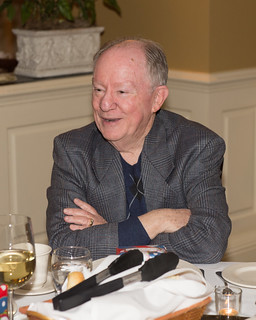 |
I had my facts, my notes, and before the Commission began, there were reams of supplemental materials.
Did anyone inform me about this added information? How much reading is a city resident expected to do in order to comment on a matter? And who is paying for all of this paperwork? At the end of the meeting, an MTA rep thanked all the staff who worked on the project for the countless hours that they spent preparing reports, maps, and other materials for the Commission.
I was thinking the exact same thing when looking over all the reams of information.
The Daily Breeze articled published on December 26th provided key insight on the plant's non-endangered status on state and federal lists. No one had told me about the potential costs facing the city in the maintenance of this plant.
The Commission Chair, Steven Polcari, was not a very nice man, either. I have slightly more respect for Mayor Pat Furey, in that he invites discussion and comment, along with listening to my concerns about the city streets. Despite the chair's declaration that the Commission hearing was informal, I could sense the unease in number of the participants who were complaining about the auto shop to be built on the corner of Eriel and Sepulveda.
Now I understand why city governments tend to get away with a lot of planning and construction even though it runs contrary to the opinions and interests of local residents.
All of the paperwork one has to plow through!
How many of us have the time to read through every page of the local paper lo learn about Commission hearings? The language churning out of the committee members, plus the loaded answers from the attending staff are just overwhelming.
I was glad that Clint Paulson had showed up in time, to read through key portions of the text. If he had not highlighted the undefined costs of maintaining the plant, I would have not know about it.
Some of the commissioners were unclear about their role or the consequence of their Yes or No votes. At least one of them was willing to comment that he wanted to pursue conditional approval for the projection, before moving forward on giving away two acres for a plant.
Most of them were enthusiastic about moving the project forward, but one of them admitted that they had not seen the site, or at least the plant in question. How much time should any commission spend on exploring an issue, though? And at what cost?
At least the staffers from the city manager's office were willing to answer my questions, but I found the answers regarding transplantation inefficient. Gregg Lodan provided the most information, and explained that the city was doing the most that it could with the little resources available to them.
The real culprit is the state agencies, supported by CEQA, and all the attending regulations.
 |
| Commissioner Steve Skoll |
I was better informed about the matter after the hearing, but I was frustrated along with Commissioner Skoll that the Commission had to vote a comprehensive Yes or No, without amending the mitigation plan. I am somewhat disturbed that Commission members whom I spoke with (as well as city councilmembers) did not have enough information on the project, either.
The biggest problem for me, brought up by Paulson, are the undetermined costs associated with caring for the plant. Other commissions, or the city council as a whole, will have to discuss the matter, and it should not be ignored.
No comments:
Post a Comment